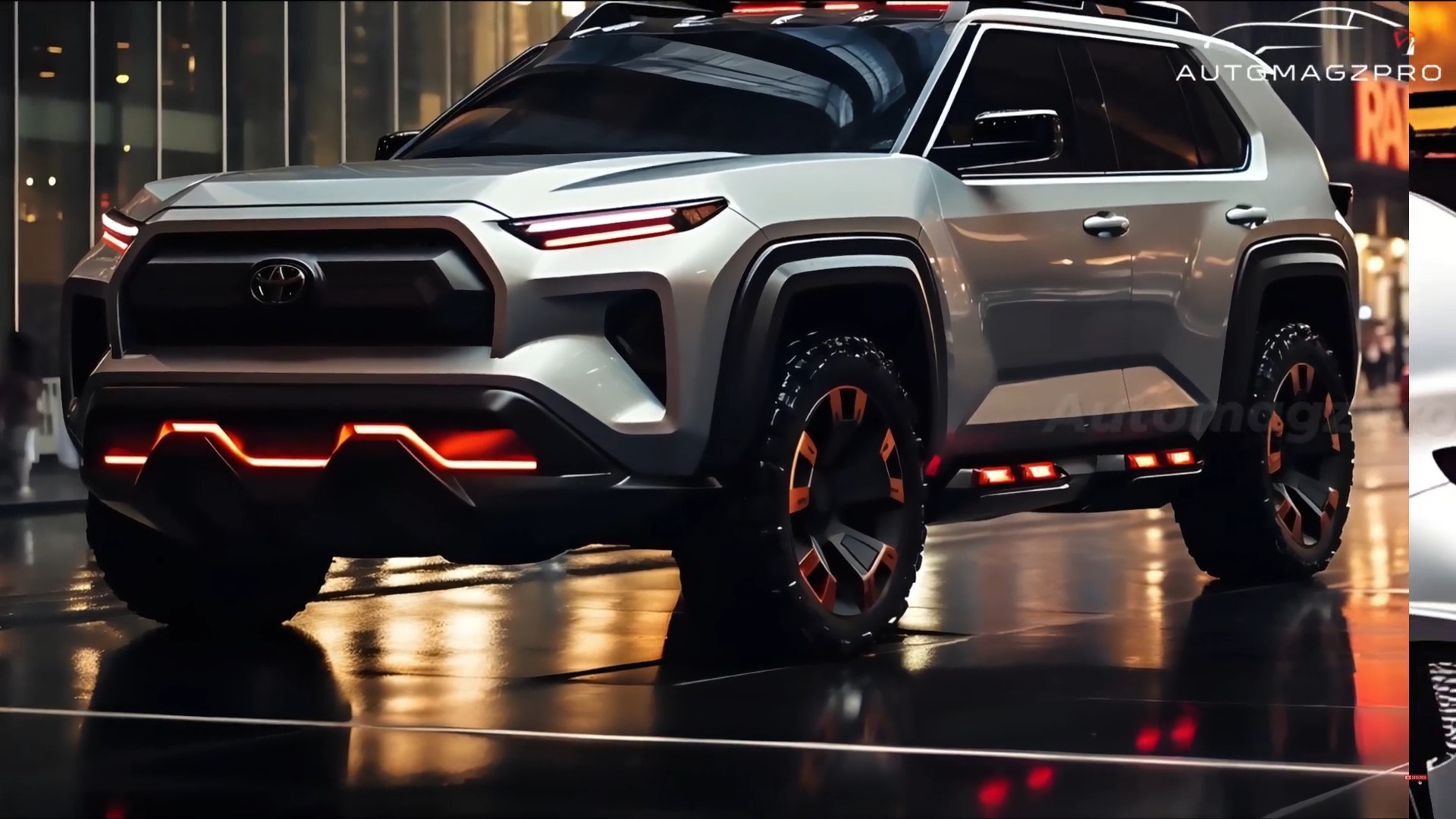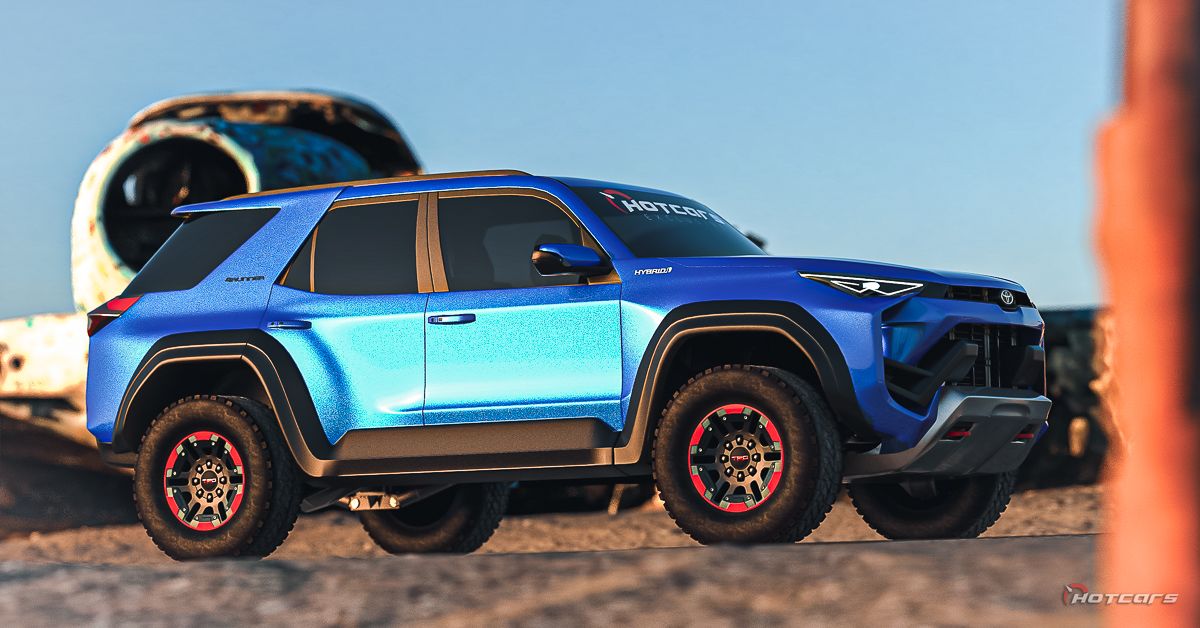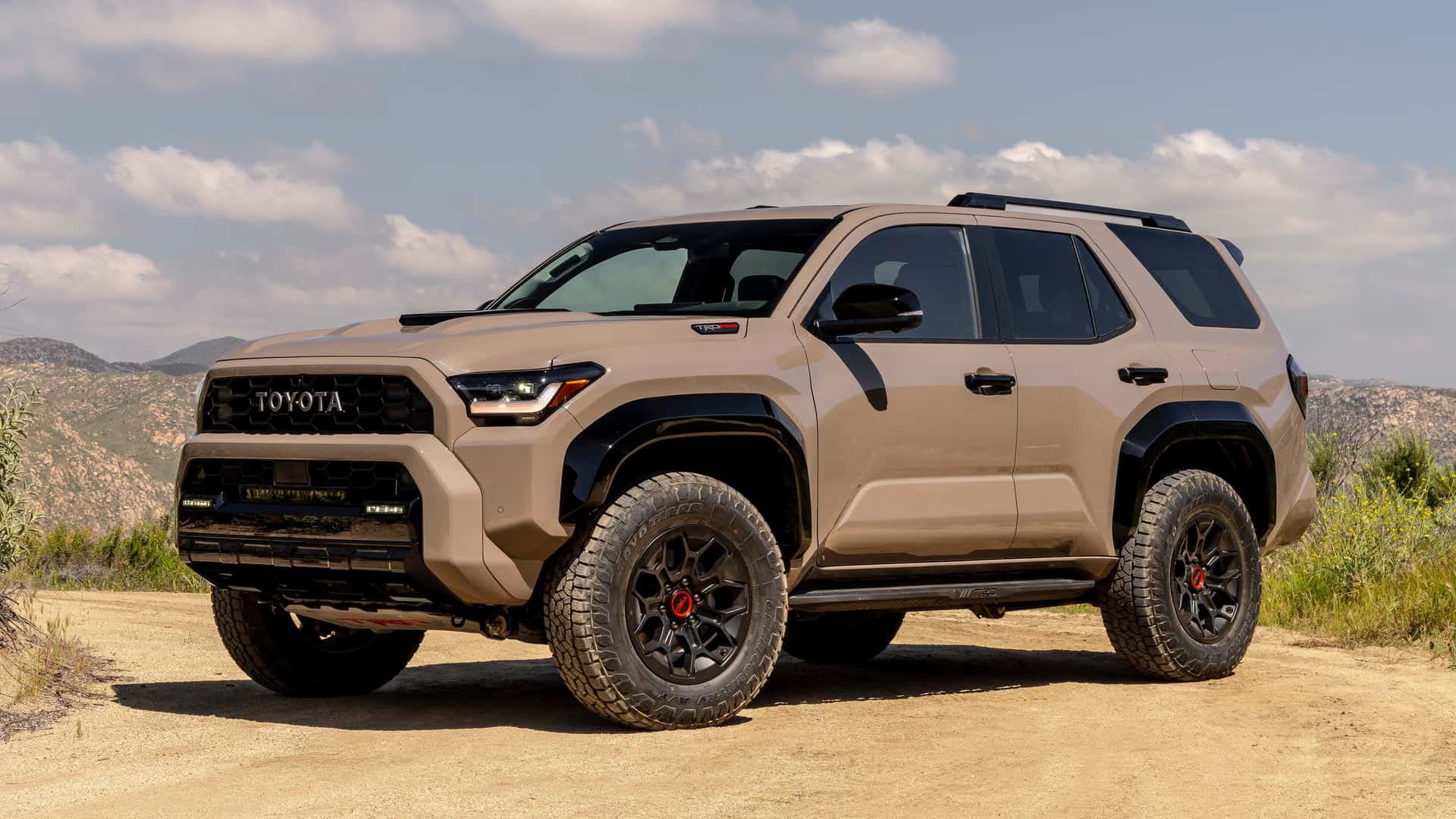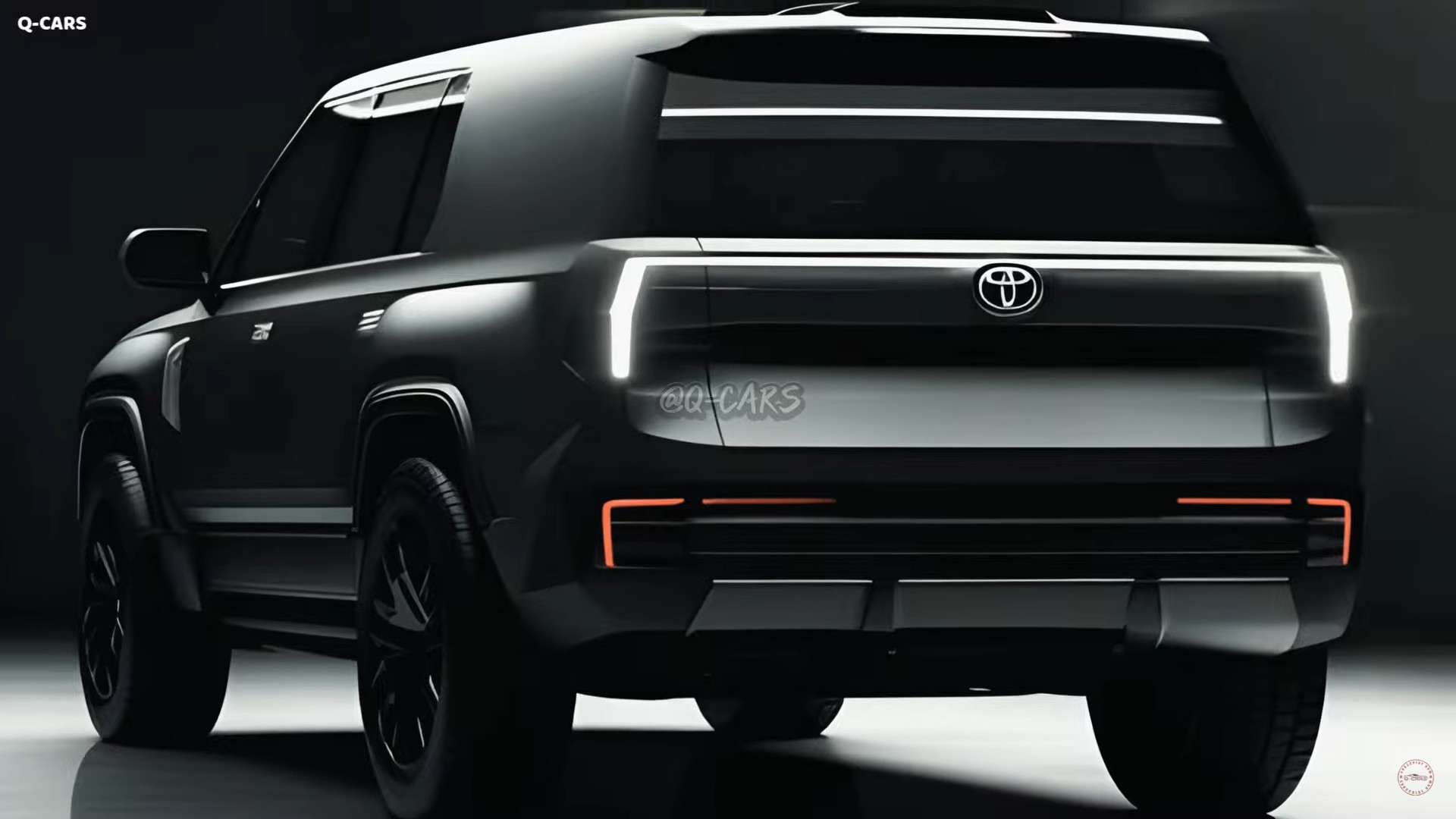The 2025 Toyota 4Runner Hybrid: A Fuel-Efficient Beast?
By admin / August 29, 2024 / No Comments / 2025
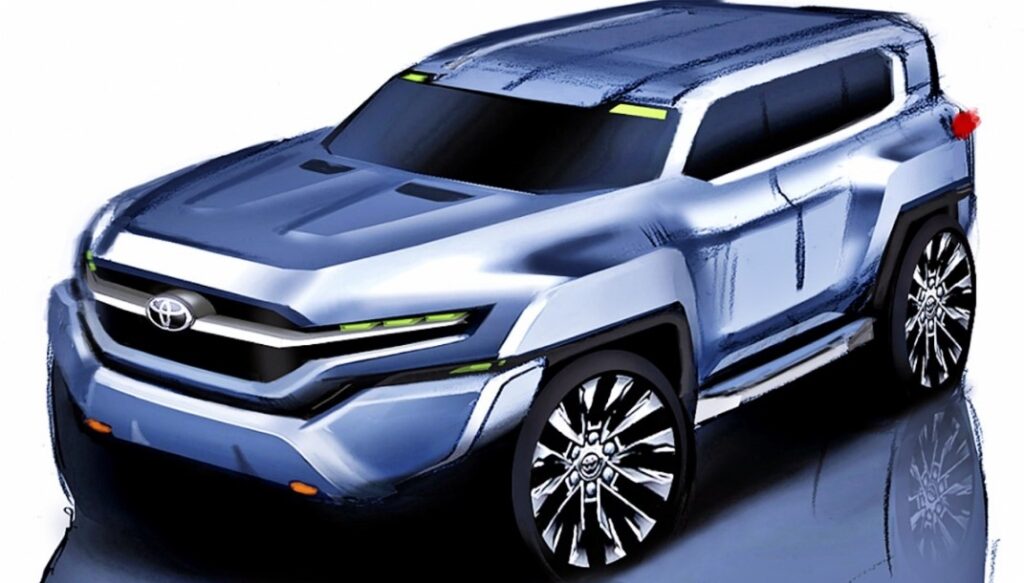
The 2025 Toyota 4Runner Hybrid: A Fuel-Efficient Beast?
The Toyota 4Runner, a rugged and capable SUV, has long been a favorite among off-road enthusiasts and families seeking a dependable vehicle. However, its thirst for fuel has always been a drawback, especially in an era of rising gas prices and growing concern for environmental impact. Enter the 2025 4Runner Hybrid, a potential game-changer that promises to deliver the same off-road prowess with a significantly improved fuel economy.
While official specifications are yet to be released, industry experts and analysts are eagerly anticipating the arrival of this hybrid model, predicting a significant leap in fuel efficiency compared to its gasoline-only counterparts. This article delves into the potential fuel economy of the 2025 4Runner Hybrid, exploring the technologies likely to be employed, and analyzing its impact on the SUV market.
The Need for Change: Fuel Economy in the Modern 4Runner
The current 4Runner, powered by a 4.0-liter V6 engine, delivers a respectable 19 mpg city and 23 mpg highway, a figure that pales in comparison to its hybrid rivals. This fuel consumption, while acceptable for a vehicle known for its off-road capabilities, is becoming increasingly unsustainable in a world focused on reducing carbon emissions and maximizing fuel efficiency.
The demand for more fuel-efficient SUVs is undeniable. Consumers are increasingly opting for hybrid and electric vehicles, driven by factors like rising gas prices, environmental concerns, and government incentives. The 4Runner, despite its loyal following, has been losing ground to competitors like the Jeep Wrangler and Ford Bronco, which offer hybrid and plug-in hybrid options.
The Promise of Hybrid Technology:
Toyota is a pioneer in hybrid technology, having introduced the Prius in 1997. The company’s expertise in this field is expected to be instrumental in the development of the 2025 4Runner Hybrid.
Potential Hybrid Systems for the 2025 4Runner:
Several hybrid systems are likely to be considered for the 2025 4Runner, each offering unique advantages and disadvantages:
- Mild Hybrid: This system uses a small electric motor to assist the gasoline engine, providing a boost in power and improving fuel efficiency. It’s a relatively simple and cost-effective solution, ideal for enhancing fuel economy without sacrificing the 4Runner’s off-road capabilities.
- Full Hybrid: This system combines a gasoline engine with a larger electric motor, allowing for extended periods of electric-only driving. It offers significant fuel savings, especially in urban environments, but it may come with a higher price tag.
- Plug-in Hybrid: This system combines a gasoline engine with a large battery pack that can be charged externally. It allows for longer electric-only driving ranges, making it suitable for daily commutes and reducing reliance on gasoline. However, it requires charging infrastructure and adds to the vehicle’s overall weight.
Factors Influencing Fuel Economy:
Several factors will influence the actual fuel economy of the 2025 4Runner Hybrid:
- Hybrid System: The specific hybrid system employed will have a significant impact on fuel efficiency. A full hybrid system will offer greater fuel savings than a mild hybrid, while a plug-in hybrid will offer the most significant reduction in fuel consumption.
- Battery Capacity: The size of the battery pack in a full or plug-in hybrid system will determine the range of electric-only driving. A larger battery will allow for longer electric-only driving, leading to greater fuel savings.
- Engine Efficiency: The efficiency of the gasoline engine will also play a role in overall fuel economy. Toyota is expected to utilize a more efficient and potentially downsized engine in the hybrid 4Runner, further improving fuel efficiency.
- Driving Style: Fuel efficiency is heavily influenced by driving habits. Aggressive acceleration, frequent braking, and heavy loads will consume more fuel, regardless of the hybrid system.
Projected Fuel Economy:
Based on current trends and industry analysis, the 2025 4Runner Hybrid is projected to achieve a significant improvement in fuel economy compared to the gasoline-only model. While specific figures are not yet available, experts predict a combined fuel economy of around 30 mpg, potentially even exceeding 35 mpg for certain hybrid configurations.
Impact on the Market:
The introduction of a fuel-efficient hybrid 4Runner is likely to have a significant impact on the SUV market. It could:
- Attract New Customers: The hybrid model could attract new customers who are looking for a fuel-efficient and environmentally friendly SUV.
- Increase Brand Loyalty: Existing 4Runner owners who are concerned about fuel economy may be enticed to upgrade to the hybrid model, strengthening brand loyalty.
- Put Pressure on Competitors: The arrival of a hybrid 4Runner could pressure other SUV manufacturers to introduce their own hybrid models, intensifying competition in the market.
Challenges and Considerations:
While the prospect of a fuel-efficient 4Runner is exciting, several challenges and considerations remain:
- Cost: Hybrid technology can add to the cost of a vehicle. The 2025 4Runner Hybrid is likely to be priced higher than the gasoline-only model, which could deter some buyers.
- Off-Road Performance: Hybrid systems can add weight to a vehicle, potentially impacting off-road performance. Toyota will need to ensure that the hybrid 4Runner maintains its legendary off-road capabilities.
- Battery Range: The range of electric-only driving in a plug-in hybrid model will depend on the size of the battery pack and the charging infrastructure available. Limited range could be a concern for some customers.
Conclusion:
The 2025 Toyota 4Runner Hybrid promises to be a game-changer in the SUV market, offering a potent combination of off-road prowess and fuel efficiency. While specific details are still under wraps, industry experts anticipate a significant improvement in fuel economy compared to its gasoline-only counterparts. The arrival of this hybrid model could attract new customers, strengthen brand loyalty, and put pressure on competitors to follow suit. However, the challenges of cost, off-road performance, and battery range will need to be carefully addressed to ensure the success of this highly anticipated vehicle. The 2025 4Runner Hybrid could be the key to unlocking a more sustainable future for the iconic SUV, while still retaining its rugged character and off-road capability.

